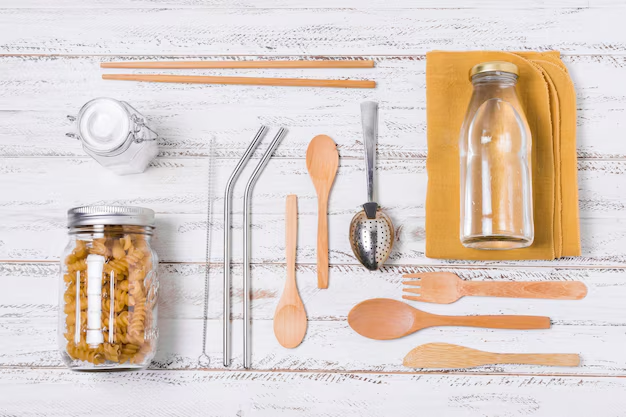Should You Keep Ketchup in the Refrigerator? An In-Depth Look
Ketchup is a staple condiment found in countless households worldwide. However, a common debate that arises in kitchens everywhere is whether ketchup should be refrigerated after opening. This fascinating topic opens up discussions around food storage, cultural habits, and even family traditions. In this article, we'll explore various perspectives, expert advice, and practical tips on whether you should keep ketchup in the refrigerator.
Understanding Ketchup: What's in It?
Ketchup, primarily made from tomatoes, vinegar, sugar, salt, and various spices, is known for its sweet and tangy flavor. The tomato base, combined with vinegar—a natural preservative—means that ketchup has an extended shelf life even at room temperature when unopened. But what happens once you've cracked open that bottle? Let's dive into the science and practicality behind its storage.
The Role of Acidity and Sugar
Acidity plays a crucial role in preserving food products, and ketchup is no exception. The vinegar content increases acidity, which helps inhibit bacterial growth. Sugar, another key ingredient, acts as an additional preservative by reducing water activity, thus limiting bacteria.
Key takeaway: Ketchup's high acidity and sugar content contribute to its ability to remain stable at room temperature, but that doesn't necessarily settle the fridge debate.
Perspectives on Refrigeration
Opinions about whether ketchup should be refrigerated often depend on cultural practices and personal preferences. Let's explore different perspectives and what they entail.
The American Norm
In many American households, it's common to refrigerate ketchup. This practice is seen as a way to preserve freshness and enhance flavor consistency. The cool temperature helps maintain the desired consistency and taste of the product, especially important for avid ketchup enthusiasts.
The European Approach
In contrast, some European countries view refrigeration as unnecessary for condiments like ketchup. These preferences can be attributed to longstanding habits where space-saving practices and immediate usage patterns influence storage choices.
Noteworthy point: These perspectives aren't absolute rules. Variations are often based on personal preference or household convenience.
What Do Food Experts Recommend?
Experts in food safety and culinary science offer diverse opinions. However, there is a general consensus that refrigeration is a safe practice, especially if you're concerned about the potential for spoilage.
The Case for Refrigeration
Preserving Freshness: For those who don't finish a bottle quickly, the refrigerator serves as a reliable method to extend freshness and maintain optimal taste.
Preventing Bacterial Growth: While ketchup is unlikely to spoil quickly due to its ingredients, refrigeration is a proactive means to prevent bacterial growth and spoilage.
The Room Temperature Argument
Label Instructions: Some ketchup bottles state that refrigeration is suggested but not required. This implies that keeping it at room temperature is acceptable, primarily if consumed quickly.
Taste Preferences: For some, room-temperature ketchup offers a smoother pour and a subtly different flavor that adds to their culinary experience.
Storage Best Practices
To make the best decision for your household, consider these practical tips:
When to Refrigerate
- Extended Use: If you don't use ketchup often, it's best to store it in the fridge to preserve its quality.
- Hot Climates: In warmer climates where kitchen temperatures soar, refrigeration can prevent degradation.
- Extended Open Time: If it takes months to finish the bottle, the refrigerator is the better choice.
When Room Temperature Works
- Quick Consumption: Households that go through ketchup rapidly can often keep it at room temperature without issues.
- Preference-Based: If you prefer a warmer taste or easier flow, and don't worry about spoilage, room temperature may suffice.
General Storage Tips
- Cool, Dark Places: Unopened bottles should be stored in a cool, dry place away from direct sunlight.
- Sealed Lid: Always ensure the lid is tightly closed to prevent contamination or drying out.
Alternatives to Consider
In homes where there is a debate over ketchup storage, consider alternatives or compromises:
- Mini Fridge or Fridge Door: Designate a space for condiments, like the refrigerator door, to keep items organized and accessible.
- Individual Packets: For families with differing preferences, using single-use packets can be a convenient solution.
Summarized Insights
Here's a quick highlight of practical tips and key takeaways to remember:
- 🌡️ Room-Temperature vs. Refrigeration: Depends on usage and personal preference.
- 🧊 When in Doubt: Refrigerate for safety, especially if usage is sporadic.
- 🍅 Taste Matters: Both storage methods can slightly affect taste and texture.
- 📦 Storage Tips: Keep sealed and stored away from heat when unopened.
The Lifespan of Opened Ketchup
It's important to consider how long opened ketchup remains fresh:
- Refrigerated: Can last several months, maintaining quality and taste.
- Room Temperature: Safe for up to a month if used regularly and stored properly.
Final Thoughts
The question of whether to refrigerate ketchup may not have a one-size-fits-all answer. It boils down to personal preference, usage patterns, and cultural norms. Refrigeration might be the prudent choice for those who want absolute certainty about safety and taste consistency. However, room temperature storage can also be perfectly viable under the right conditions.
In the end, whatever method you choose, understanding the factors that contribute to ketchup's shelf life—such as acidity, sugar content, and storage habits—will empower you to make an informed decision that best suits your household needs.

